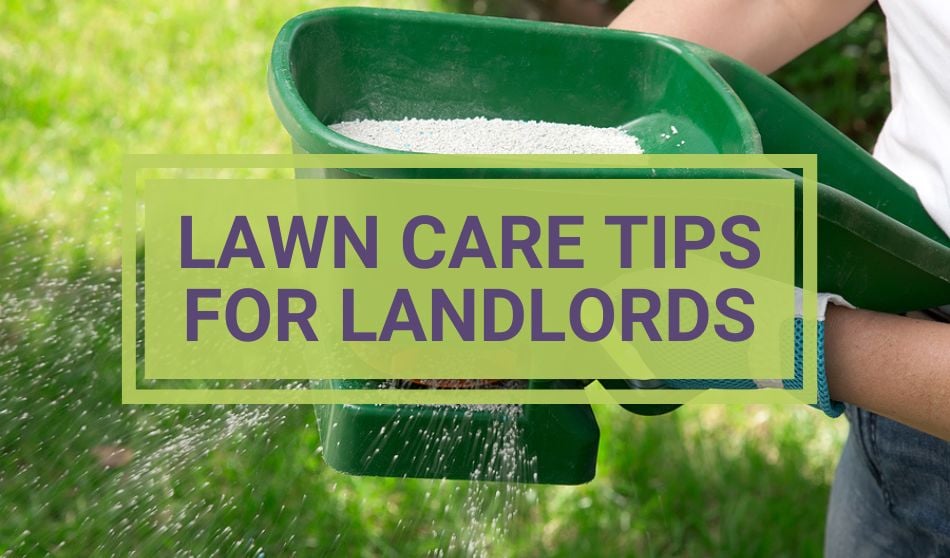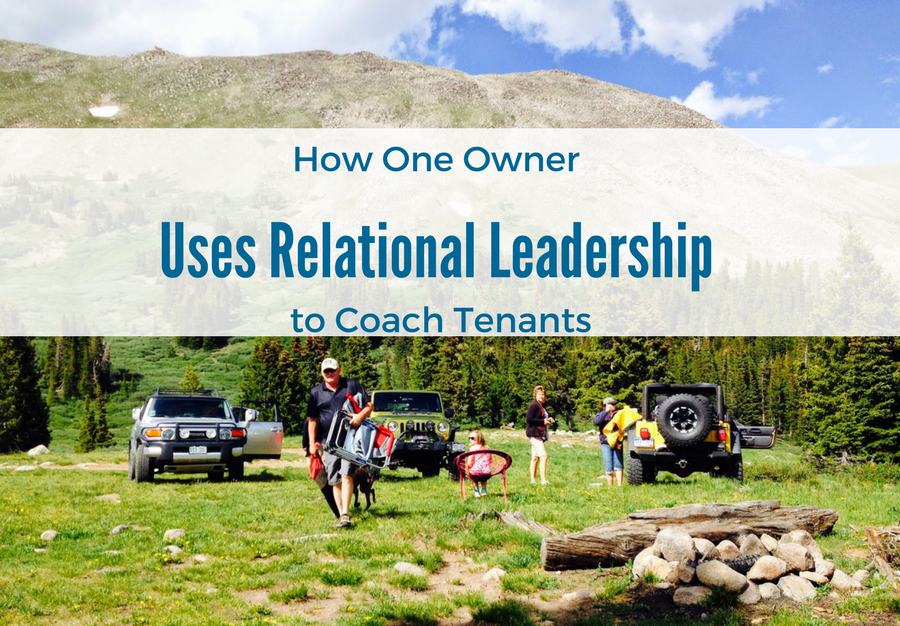
Lawn care is vital for landlords, impacting property value and tenant satisfaction. A well-maintained lawn enhances curb appeal, attracts quality tenants, and reduces turnover rates. Implementing effective weed control, proper fertilization, and water efficiency measures are essential. Landlords should also consider professional lawn care services if maintenance becomes overwhelming. Prioritizing lawn care ensures a positive investment and tenant experience.
For landlords, lawn care is a year-round, ongoing responsibility that demands attention and can have costly consequences if neglected. The landscaping of a property impacts its perceived value and also contributes significantly to creating a positive and lasting impression not only for potential tenants but also for potential buyers.
A well-maintained lawn can make a property stand out, and can help landlords maintain a property their tenants will love. By following our tips for lawn care, you can increase your property’s value, boost tenant satisfaction, attract higher-quality tenants, and benefit from an improved ROI.
Benefits of Maintaining Your Rental Property’s Lawn
Attractive Curb Appeal
A well-maintained lawn will significantly improve the overall appearance of your rental property and create an inviting first impression for potential tenants. With a visually appealing exterior, landlords can attract quality tenants, increasing the property’s desirability and potentially commanding higher rental rates.
Tenant Satisfaction
It’s hard to deny that tenants appreciate living in a property that is well-maintained. When they are offered a pleasant outdoor space to relax, entertain, and enjoy recreational activities, they are often more satisfied and are more likely to stick around longer. For landlords, this means lower turnover rates and associated costs.
Positive Reputation
A property that stands out for its attractive landscaping may garner positive attention. In addition to generating interest from potential tenants, it can lead to word-of-mouth recommendations from satisfied tenants, giving landlords a competitive edge in the rental market.
Value Appreciation
As part of the property’s landscaping, a healthy lawn enhances its aesthetic appeal and perceived value. Not only can a property with an attractive outdoor space command higher rent, but it can potentially yield a better return on investment for landlords when it comes time to sell.
Environmental Benefits
Since a healthy lawn absorbs carbon dioxide, it helps reduce greenhouse gas emissions. It also acts as a natural filter, trapping dust and pollutants from the air and improving air quality. Additionally, a well-maintained lawn prevents soil erosion and stormwater runoff, promoting water conservation and protecting nearby water sources. By going green and being environmentally friendly, you can help your rental property stand out amongst others in the area and appeal to a wider range of renters.
Essential Lawn Care Tips For Landlords
Implement Effective Weed Control
Weeds can quickly detract from the beauty of a lawn. To keep unwanted plants at bay, implement effective weed control measures. Pre-emergent herbicides can prevent weed seeds from germinating, while post-emergent herbicides can target existing weeds. Alternatively, manual weed removal using hand tools can be an eco-friendly option for smaller lawns. Remember, when using herbicides, make sure you carefully read and follow all instructions and safety precautions.
Fertilize Appropriately
To maintain a healthy lawn, proper fertilization is necessary. Apply fertilizers at the recommended times and rates, ensuring they contain the necessary nutrients for your specific grass type. Slow-release fertilizers in particular, provide a steady supply of nutrients over an extended period, reducing the risk of excessive growth and nutrient runoff. You may also want to consider organic fertilizers, which have the ability to nourish the soil and support long-term lawn health.
Use Worms To Promote Healthy Soil
To thrive, soil needs oxygen. To facilitate aeration, you can spread worms throughout your lawn and garden. They burrow through the soil, creating tunnels that improve air circulation and drainage. As they move, they also break down organic matter, enriching the soil with valuable nutrients. Ants will also do a good job aerating the soil because they inadvertently create passages that promote air circulation. Additionally, by preying on harmful insects, ants act as built-in pest control and can also distribute seeds and pollinate flowers.
Grow Grass That Thrives In Your Climate
Different grass species have varying tolerances for temperature, rainfall, and sunlight. Start by researching grass types that are well-suited to your climate. Then, determine which growing conditions are necessary for it to remain healthy. For example, different grass species have specific sunlight requirements while others have specific water needs.
Let Grass Cuttings Remain On The Lawn
Rather than using a leaf-blower after mowing or raking the lawn, leave grass cutting in place. When left on the ground, grass cuttings decompose, enriching the soil with essential nutrients, which also eliminates the need for chemical fertilizers. When you do this, it reduces pollutants generated by fertilizer production.
Overseed To Fill Up Sparse Bare Spots
It is not uncommon to have sparse bare spots in your lawn, which may require overseeding to fill these areas. For warm-season grass, overseeding is typically done in late spring, while for cool-season grass, it is best done during the fall. In regions with cooler weather or colder climates, spot-seeding bald spots in the spring can yield favorable outcomes.
Pro-tip: When overseeding your lawn, apply slow-release nitrogen-rich fertilizer, which provides a steady supply of nutrients to support seed germination and establishment.
Address Lawn Diseases and Pests
Monitor the lawn regularly for signs of diseases such as brown patch, dollar spot, or rust. Try to identify the specific disease or pest issue and treat it promptly using appropriate remedies. If you’re not sure what you’re supposed to be looking for, seek professional assistance.
Pro-tip: Preventive measures like proper watering and regular aeration can often reduce the risk of disease and pest infestations.
Promote Water Efficiency
Water efficiency is not only environmentally responsible but also financially beneficial for landlords. To optimize water usage, consider installing smart irrigation systems or using rainwater collection methods. Adjust watering schedules based on seasonal changes and rainfall patterns, ensuring that the lawn receives sufficient moisture without wasting water.
Take Stock Of Your Sprinkler System
A well-functioning sprinkler system ensures efficient and adequate water distribution, promoting the health and vitality of the lawn. By conducting regular inspections, you can identify any issues such as broken or clogged sprinkler heads, leaks, or misaligned spray patterns.
When you address these problems promptly, you can prevent water waste, ensure proper hydration for the lawn, and minimize the risk of over or under-watering. Another advantage of a properly maintained sprinkler system is that it helps conserve water, reduces utility costs, and contributes to sustainable and environmentally friendly lawn care practices.
Take Proactive Steps To Prepare For Seasonal Changes
Understanding your local climate will guide your lawn care practices and help you anticipate the needs of your lawn during each season. During hot summer months, increase the frequency and duration of watering to prevent drought stress. In cooler seasons, adjust watering to account for reduced evaporation rates. Monitor rainfall levels and adjust irrigation accordingly, ensuring your lawn receives sufficient moisture without overwatering.
To prepare your lawn for winter, rake and remove any remaining debris before the first frost. We also suggest trimming back shrubs or trees that may be susceptible to damage from heavy snow or ice. You may also want to apply a winterizer lawn fertilizer to fortify the grass and enhance its resilience during the dormant season.
Keep Pets In Mind
If you’re a pet-friendly rental property and your tenants have furry friends, it’s important to consider their safety and well-being during lawn maintenance activities. Before applying any fertilizers, herbicides, or pesticides, you should ensure that the products used are pet-friendly and non-toxic. Clearing the lawn of debris, such as sticks or rocks, also helps prevent accidental injuries to pets on the property.
Encourage Tenant Participation
Engaging tenants in the lawn care process can encourage them to meet other tenants in the rental community, and also give them an opportunity to be involved. If they do choose to participate, provide them with guidelines and clearly communicate your lawn care policies for mowing, watering, and reporting any lawn issues. If your budget allows for it, tenants will also appreciate you providing basic lawn care tools and resources.
When To Hire Professional Help
If you can care for your property’s lawn by yourself, DIY maintenance will save you loads of money. However, if lawn care becomes overwhelming or if you lack the time or expertise, it’s time to consider hiring professional lawn care services. By entrusting the care of your property to lawn maintenance experts, you’ll benefit from a perpetually lush and green lawn.
Even just one month of neglect can cause significant damage to a once-beautiful lawn, squandering considerable financial resources. Hiring a company to maintain it for you can save you time and money down the road, especially if lawn care is something you don’t personally have time to manage.
Key Takeaway
Landlords can’t afford to disregard lawn maintenance. Those who prioritize lawn care see how its many benefits keep giving back, contributing to a better investment. But if it’s a part of your rental property’s management you don’t have time for, don’t hesitate to hire professional experts to help you upkeep your lawn. You’ll be glad you did.





